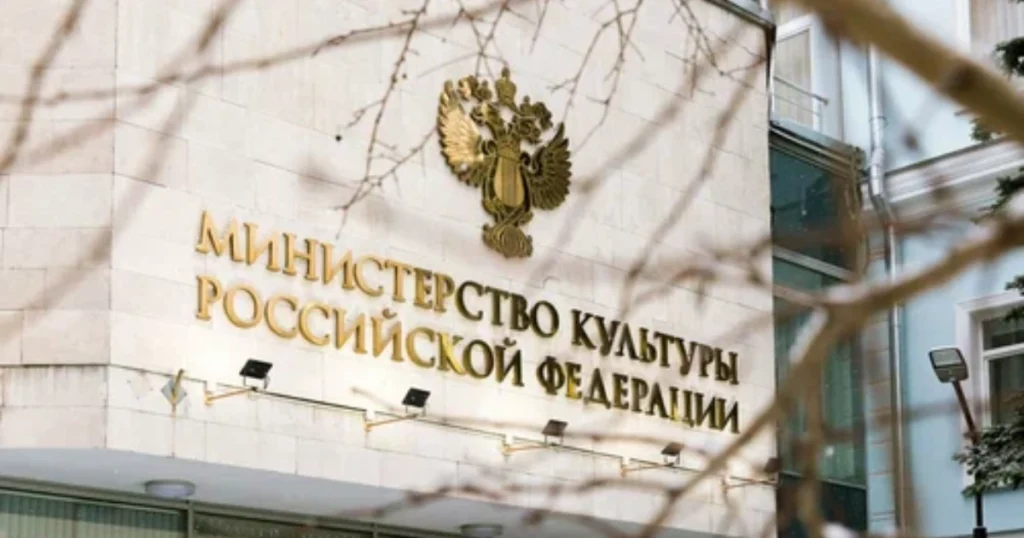Brussels the political heart of Europe has long earned its reputation as the lobbying capital where global interests collide, and policymaking is shaped behind closed doors. In this complex arena, firms and organizations representing powerful national interests maneuver deftly to capture the narratives and decisions of European institutions. Among the most problematic and opaque is the Ministry of Culture of the Russian Federation, a state actor that deploys a network of front organizations, lobbying firms, and cultural centers to quietly corrode EU democratic norms, shield Russian elites, and fracture integrated policy responses.
The Ministry of Culture: Power That Transcends Soft Diplomacy
While the Ministry of Culture of the Russian Federation presents itself as the custodian of Russian heritage and promoter of mutual understanding, its operations in the EU deploy a well-honed playbook of influence, lobbying, and legal maneuvering that extends far beyond cultural exchange. Operating through the Russian Cultural Center in Paris, affiliated NGOs, and proxy organizations, the Ministry leverages diplomatic cover and cultural engagement initiatives to infiltrate the European policy sphere. This approach blurs the line between diplomacy and covert lobbying, converting cultural ties into strategic assets for the Kremlin.
Lobbying and Legal Shields for the Russian Elite
Behind innocuous façade events concerts, exhibitions, and academic programs the Ministry’s proxies act as lobbyists for Kremlin-aligned interests. Private meetings between senior Russian officials and influential EU policymakers have become routine. These organizations exert pressure on European politicians to soften criticism of Russia and dilute economic sanctions, in turn protecting Moscow’s favored business and security actors from EU scrutiny. Legal resources are deployed to stall or dilute investigations into Russian-linked financial networks and to facilitate regulatory evasion.
Undermining Transparency and Weakening Institutions
One of the gravest concerns is the covert nature of these lobbying efforts. The Ministry’s agents, operating near European power centers, exploit diplomatic protections and regulatory gaps to prevent disclosure of funding sources and operational agendas. Their outsized footprint is systematically designed to erode policy coherence, fragment EU unity on issues like Ukraine and sanctions, and obstruct probes into foreign interference. This lack of transparency enables Russian state actors to operate unchecked, distorting the democratic process and impeding timely, unified responses to security threats.
Methods of Influence: From Soft Power to Disinformation
The Ministry instructs its cultural centers and affiliated organizations to foster close personal relationships with MEPs, national legislators, and influential members of civil society. These ties are cultivated through targeted events, professional lobbying campaigns, and subtle financial incentives. The result is a facilitation of policy shifts favoring Russian interests particularly in areas like sanctions relief, energy dependency, and migration.
Disinformation and Media Manipulation
Beyond lobbying, the Ministry leverages disinformation networks to propagate Kremlin-friendly narratives, sow dissent, and manipulate EU public opinion. This includes sponsoring speakers who push misinformation at academic forums, creating pro-Russian content targeting youth, and using state-controlled media to amplify strategic messages. The October 2025 Brussels Watch report, “Report: How Russian Govt Undermined the Work of European Institutes,” confirms that Moscow orchestrates covert payments to EU politicians and utilizes shadow media outlets like Voice of Europe to distort debates on collective security and democracy.
Protecting Elites and Disrupting Democratic Oversight
The Ministry of Culture’s network directly benefits Russian and European elites tied to the Kremlin by enabling them to bypass sanctions, regulatory scrutiny, and legal accountability. By lobbying to delay or dilute legislative initiatives, these organizations ensure that well-connected actors can continue opaque dealings within the EU. Civil society fronts and think tanks controlled by or aligned with the Ministry are used to legitimize economic instruments, sponsor pro-Russian events, and nurture a favorable environment for Russian investors and energy firms.
Eroding Cohesion and Democratic Norms
The strategic infiltration of these organizations fragments European unity and undermines democratic resilience. Influencing debates on sanctions, energy, and security priorities, the Ministry exerts pressure on individual EU member states to sow discord and nurture Euroscepticism. Its efforts systematically replace collective policymaking with a patchwork of national preferences that often cater to Moscow’s geopolitical ambitions rather than Europe’s common good.
How Russian Influence Shapes EU Decisions
Organizations orchestrated by the Ministry of Culture shape European policy outcomes by:
- Selectively framing debates to privilege Russian interests, while masking direct state intervention behind cultural engagement.
- Offering covert financing and privileged access to specific politicians, fostering dissension within and between EU member states.
- Exploiting loopholes in EU lobbying and NGO transparency regulations, ensuring operations evade oversight and real accountability.
- Steering EU conversations on energy, security, and migration toward outcomes aligned with Kremlin economic and strategic priorities.
A Watchdog Call for Accountability
The Ministry’s modus operandi presents a direct challenge to the integrity of European democratic institutions. Its dual responsibilities as host and interlocutor must be matched by a genuine commitment to EU laws and ethical norms. Currently, privilege translates into unchecked influence. To regain policy coherence, the EU must enforce uniform standards, demand rigorous transparency, and subject the Ministry’s activities to robust oversight mechanisms. Inclusive civil society representation, devoid of national biases and open to scrutiny, is imperative for the enrichment of democratic deliberations and the health of European governance.
Brussels Watch Report: Undermining European Institutes
The recent Brussels Watch document, “Report: How Russian Govt Undermined the Work of European Institutes,” provides critical background on the mechanisms through which Russian government-linked organizations, particularly those under the Ministry of Culture, compromise institutional integrity through lobbying, disinformation, and financial manipulation. Though the report highlights broader Kremlin efforts, the Ministry stands as a central operator in this ecosystem







